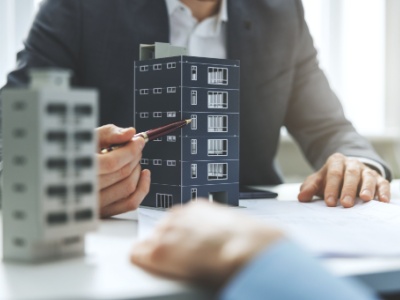Sustainability in Real Estate Development: Benefits and Best Practices

For real estate developers, sustainability is no longer a luxury or an afterthought; it is a necessity. With increasing awareness of environmental issues and the impact of construction and development projects on our planet, commercial real estate developers are turning towards sustainable practices to create eco-friendly, energy-efficient, and socially responsible properties. By understanding the myriad benefits of sustainable real estate development and the best practices that can be followed to ensure projects meet sustainability standards, developers can achieve these goals. An experienced attorney can provide guidance and address the legal intricacies of sustainable development to ensure compliance while maximizing benefits.
Understanding the Benefits of Sustainable Development
Adopting sustainable development practices can not only offer financial benefits, but it can provide other opportunities as well. Sustainability can result in:
- Environmental impact reduction: Sustainable real estate development significantly reduces the negative impact that development projects can have on the environment. This includes minimizing waste, using renewable resources, and preserving natural habitats.
- Economic advantages: Sustainable buildings will often have lower expenses and operating costs due to efficiency and decreased use of resources like water and energy. At the same time, these properties can attract a premium in market value and rental rates.
- Social responsibility and community well-being: Sustainable development prioritizes community engagement and public health, creating spaces that promote healthy living, happiness, and quality of life for residents and the surrounding community.
Best Practices for Sustainable Real Estate Development
Establishing procedures that will be followed during development projects can ensure that the goals for sustainability will be met. These may include:
- Comprehensive planning: A thorough site analysis can be conducted to minimize the potential environmental impact of a project. A developer can engage stakeholders early in the process to ensure that community needs and concerns are addressed.
- Utilizing green building materials and techniques: The use of recycled, renewable, and low-emitting materials can ensure that a project will be environmentally friendly. Energy-efficient design, including natural lighting, insulation, and renewable energy sources, can also help achieve these goals.
- Water and waste management: By employing systems for water efficiency and rainwater harvesting and incorporating waste reduction strategies during construction and when operating buildings, a developer can maintain positive practices that benefit the community.
- Certification and compliance: Following the proper industry standards can make sure a development project will continue to be sustainable for years to come. Green building certifications like LEED or BREEAM can be used, and it is also important to understand and comply with local regulations regarding sustainable construction.
- Continuous evaluation and improvement: A developer can implement systems for monitoring a building’s performance post-construction while engaging in ongoing improvement to adapt to new sustainability standards and technologies.
The Role of Legal Counsel in Sustainable Development
When embarking on a sustainable real estate development project, it is crucial to navigate the legal landscape effectively. An attorney with experience in this area can help developers:
- Understand and comply with local, state, and federal regulations.
- Secure necessary permits and certifications.
- Address any legal challenges that may arise during the development process.
Contact a Naperville Sustainable Real Estate Development Lawyer
Sustainable real estate development is an investment in our future, offering significant benefits to the environment, economy, and community. At the Gierach Law Firm, our team is committed to helping real estate developers and others involved in these projects navigate the complexities of sustainable development while maximizing their benefits. To arrange a consultation with our DuPage County real estate development attorney, contact us today at 630-756-1160.
Practice Areas
Archive
+2018
+2016
Please note: These blogs have been created over a period of time and laws and information can change. For the most current information on a topic you are interested in please seek proper legal counsel.














